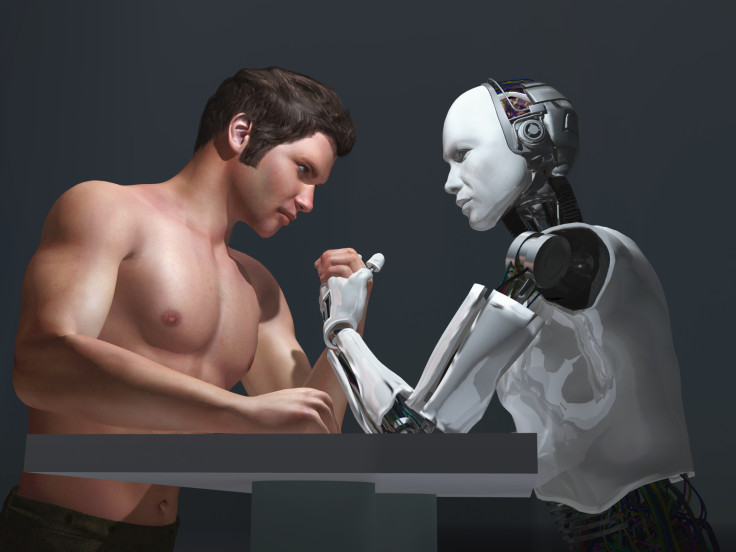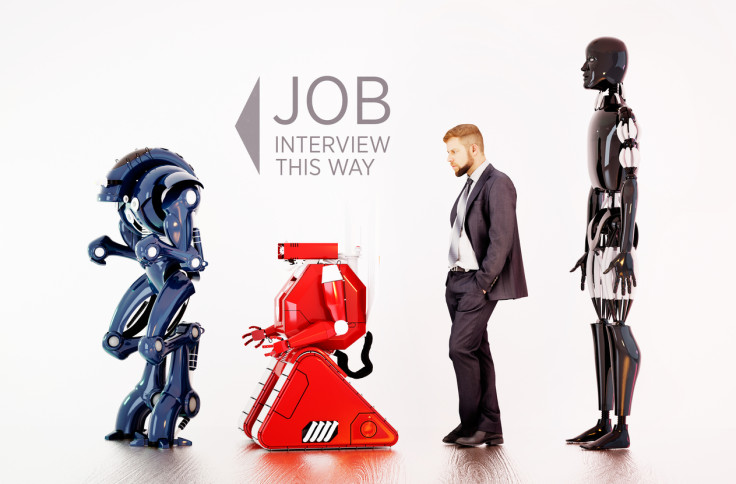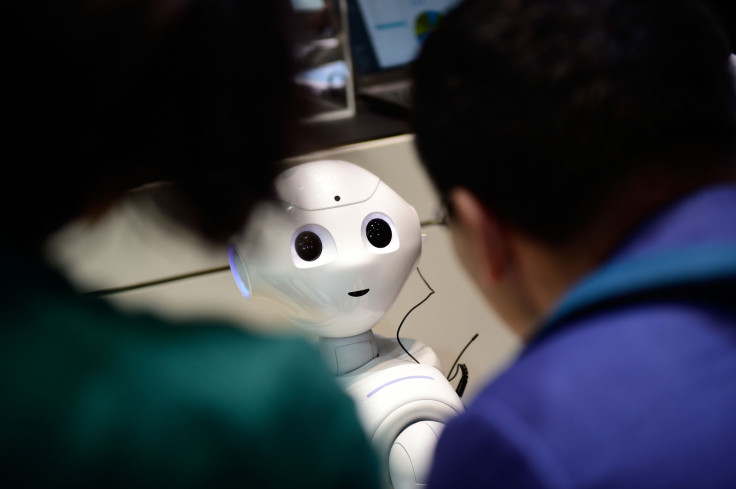Man versus Machine: Are robots taking over more jobs by the day?
Blue collar and white collar professionals are being increasingly replaced by robots.

Robots are not coming. They are already here. I know this from firsthand experiences. I'm using robots and AI apps in my small business. And when I say small, I mean really tiny! So you can just imagine what larger corporations and governments are using.
When artificial intelligence (AI), robotics and machine learning were discovered, experts told us not to worry because technology creates new jobs while eliminating old ones. (Shah, R).
They oftentimes cite case studies from the Industrial Revolution to prove their point. In other words they saw technology displacing but not replacing workers – with the hope of freeing up human time devoted to doing mundane task to allow them to do more creative work.
However lately, as technology becomes more and more sophisticated, we mere mortals definitely have something to worry about.
In 2013, researchers at Oxford University estimated that 47% of all American jobs might be automated and taken over by computers by the year 2033. (Sherman, E). In a January 2017 report the McKinsey Global Institute estimated that almost half of today's work activities are likely to be automated by 2055, give or take 20 years (Manyika, J).
Robots have been used successfully to perform repetitive blue collar jobs in factories in the past few decades, in some cases replacing all human workers in an assembly line. The International Federation of Robotics claims that there are about 1,630,000 robots in use worldwide (Wikipedia). So far in the USA, each robot introduced in a manufacturing concern displaces 5.6 workers (The Economist).
Now robots are taking over white collar jobs. As the CEO of Deutsche Bank announced recently, a lot of the bank's functions are performed by people who repeat the same activities all day – essentially making these people robots.
This is one reason why Deutsche Bank outsourced those repetitive functions leaving the accountants in the UK free to perform analytical functions which require thinking and are different from day to day. Now the Deutsche Bank's automation programme is about to take over thousands of jobs (Butcher, S).
This will reduce the bank's overhead costs and operating expenses, increasing its profits. It is also natural that other banks will follow suit, automating their routine jobs and shedding off jobs in order to remain competitive. So we can expect thousands more to lose their banking jobs.

Banking is not the only industry in which white collar workers are being replaced by robots, nor are they the first. Reuters introduced a robot to its newsroom in 2007 whose function is to write fairly detailed stock-market reports that a human journalist can edit and polish (da Costa, P.N.).
The robot is a Microsoft Excel macro that automates key market headlines that follow a predictable pattern, for example rating-agency releases. The software recognises the action taking place and reports it accurately to market clients, mostly without human intervention. In journalism, robots have not taken away jobs but have made journalists' job easier (da Costa, P.N.)
Automation of jobs is not limited to journalism and banks. In other areas, robots have either taken over or they are taking over. (Click to enlarge table)

You can read more about how industries are being transformed by the use of robots in Alec Ross' book The Industries of the Future.
Automation of business activities is here to stay and it is growing. That is because it enables businesses to improve performance by reducing errors and improving quality and speed and achieving outcomes that go beyond human capabilities.
It therefore contributes immensely to productivity, giving a needed boost to economic growth. However, the report by the McKinsey Global Institute said in each white collar occupation, only partial automation is possible. They estimate that about half of the activities that humans do at present can be automated, saving businesses $15trn (£11.3trn) in wages per year (Manyika, J). So, what are people going to do while robots do all the work?
It looks like revolutionary thinking is required if people are going to stay relevant in the work place. No one really knows what jobs will look like a decade or two from now. However, so far software has not been able to match humans in music, writing, painting and other arts.
Some people have tried using robots to write a cook book and in Japan someone used a robot to write a novel. But they can never come up with a human story that pulls the heartstrings. That is the domain of human creativity. Therefore work that requires high levels of creativity seems to be safe from robots - at least for now. Who knows what the future will bring.

Davenport, author of the book Only Humans Need Apply: Winners and Losers in the Age of Smart Machines thinks that most people in high skill positions will work side by side with robots as colleagues. He also believes that some people can move up the organisational ladder to monitor the computer's work and to make high level decisions.
Others can even choose to work on creating the technology itself. The rest will have to change occupations (Tynan, D). These options assume that robots will always be inferior to humans in intelligence.
Yet, researchers have built robots that can create baby robots. Not only that, but they are pursuing the idea of robots that can learn from their mistakes and adapt to their environment and robots that can repair other robots. Read more in the book Our Final Invention: Artificial Intelligence and the End of the Human Era by James Barrat.
The implication for everyone is that we should never be complacent. We must move with the times, improving our skills, and learning more technologically relevant skills.
In closing, my fascination with robots have led to my starting a new blog www.RobotLaborForce.com. I am keeping a close eye on the rollout of robots into workforce and what will become of human resources. Apple's co-founder Steve Wozniak predicts that we humans will end up being robots' pets! (Gibbs, S)
Iris Mack, PhD, EMBA, is a distinguished US academic who currently lectures on energy derivatives, trading and risk management for Fitch Learning and Tulane University, Louisiana, United States. She is a former MIT professor and derivatives quant/trader who has worked in financial institutions in the US, Europe and Asia. She has also previously worked for Nasa, Boeing and AT&T Bell Laboratories.
Over the years, Iris has authored several books including: Energy Trading and Risk Management: A Practical Approach to Hedging; Trading and Portfolio Diversification; A Wall Street Bailout for Main Street: This Bulletproof Trade Will Help You Get Paid , Mama says, "Money Doesn't Grow on Trees!" and US Debt: $800,000+ per Family? Trillions? Quadrillions?
References
Barrat, J., Amazon.com, Our Final Invention: Artificial Intelligence and the End of the Human Era.
Butcher, S., efinancialcareers, Where Are the Robot Accountants at Deutsche Bank? September, 2017.
da Costa, P. N., Business Insider, Robots And Automation Are Going White Collar — But They're Not Here To Steal Your Job Just Yet, April 2017.
Davenport, Thomas H., Only Humans Need Apply: Winners and Losers in the Age of Smart Machines
Gershgorn, D., Quartz, Japanese White-Collar Workers Are Already Being Replaced By Artificial Intelligence, January 2017.
Gibbs, S., The Guardian, Apple co-founder Steve Wozniak says humans will be robots' pets, June 2015.
Gibbs, S., The Guardian, Chatbot lawyer overturns 160,000 parking tickets in London and New York, June 2016.
Goldensohn, R., Crain's, Robots Next Victims: White Collar Workers, May 2017.
Graham, L., The Robots Set to Disrupt White Collar Work, July 2016.
Lee, J., Mothership, 5 White-Collar Jobs That Are Going to Robots, January 2017.
LeVine, S., Quartz, No one is prepared to stop the robot onslaught. So what will we do when it arrives?, April, 2017.






















